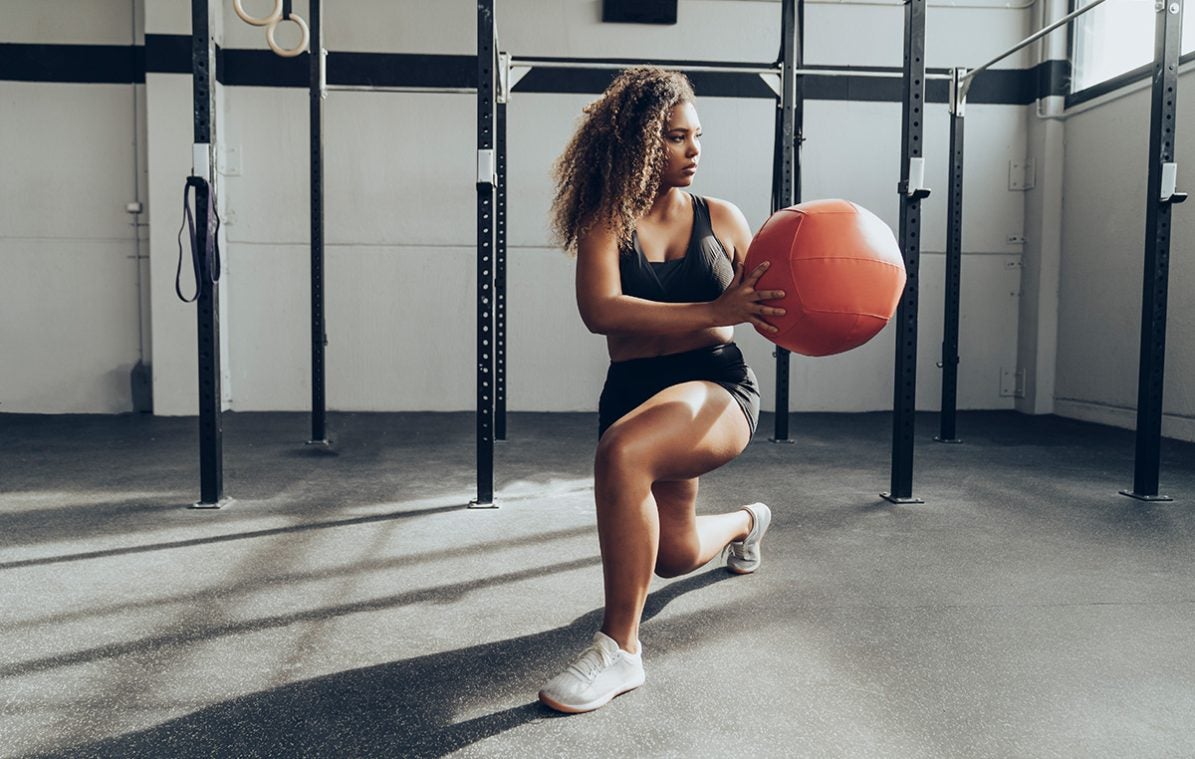5 Signs Your Fitness Routine Is Working
 ©Westend61
©Westend61
Week after week, you put your all into getting fit and eating healthily. But when you step on the scale, what do you see? No change (or just a very small difference)! But before you get frustrated and decide to throw in the towel, let’s start by saying two things: firstly—you’re not the first person this has happened to. And secondly—you can’t always see all the progress you’ve made. That number on the scale doesn’t define your fitness level (that is a scientific fact).
Related: Reasons to Throw Away Your Scale
If you compare fat and muscle tissue, they have very different densities. Muscle tissue is, in fact, denser than fat tissue, so it can push the number on the scales up a notch. But believe us, you want to have more muscle— even if that means you weigh more. Instead of focusing on your weight, it’s a much better idea to look at your body fat and muscle ratio. You can calculate this using a body fat scale or skinfold calipers, or simply by measuring your waist circumference. But don’t jump up and grab the tape measure right away. Keep reading this article to the end first… Fitness goals aside, there are many reasons to hit the gym regularly that have nothing to do with changing how you look. Perhaps your workout is the perfect opportunity to switch off and forget the stresses of everyday life? Harvard Medical School has confirmed that exercise helps reduce stress hormones like cortisol and adrenaline, while at the same time releasing happiness hormones such as endorphins. So the fact that you feel less stressed is already a great outcome from your workout that you may not have given a second thought. And here are five more…
#1 You’re Stronger
Numbers are all well and good, but a much better measure is to look at ways your strength performance has improved. Do you now warm up using a weight that was once your heavy weight? Have you gone from doing push-ups on your knees to full push-ups? Are you now ready to master clean pull-ups? All of these are signs that you’ve got stronger and built more muscle. If you hadn’t, your body simply wouldn’t be able to do it. Talk to any fitness professional and they’ll tell you that’s basically all there is to it. It can be a great idea to document these successes and try to improve over time. Or why not set yourself a new goal, such as learning to do pistol squats.
#2 You’re Sleeping Better
It’s no secret that the quality of our sleep has a direct impact on our health. While you’re asleep, your body undergoes a series of important regeneration processes and your brain is busy processing everything that’s happened during the day. Regular exercise has been proven to help improve your sleep. In a pilot study conducted in 2016, 19 female students who reported low activity in their daily life and poor sleep quality were divided into two groups. The first group did an hour and a half of moderate exercise twice a week, while the second group made no changes to their lifestyle. Each of the subjects was asked to keep a diary and specialist software was used to measure their sleep patterns. After three months, the results showed a significant improvement in the sleep quality of the first group compared to the second. The duration of sleep in the physically active group also increased by around half an hour.
#3 You Have More Energy
Have you noticed that some things are easier than they used to be? When you started, were you counting the steps until you finally completed your 5 km run, but are you now able to easily run twice as far? Perhaps you don’t feel so exhausted after work anymore and can play with your kids afterwards? Or maybe you actually caught that bus you sprinted after and got to your appointment on time? If so, that’s you getting fitter—because the more energy you have, the fitter you are.
According to US experts from the Harvard Medical School, the fitter you get, the more mitochondria your body produces inside your muscle cells. That’s important because mitochondria are like tiny power plants that convert glucose and oxygen into energy and power your body. What’s more, other benefits of exercise, such as more balanced cortisol levels, increased circulation of oxygen-rich blood, and more muscle mass, can also help you feel more energetic.
#4 Your Mental Health has Improved
Did you know that exercise can change your brain and even make it bigger? A review from the journal Frontiers in Psychology suggests that many structural and chemical changes occur in our brains when we exercise. According to the researchers, these changes help form new nerve cells and neuronal connections. And the benefits don’t stop there: being physically active also increases blood flow to the brain and improves the blood vessels’ health there. All of this, the researchers conclude, helps improve our cognitive functions, such as memory, concentration, and academic performance. And if that wasn’t enough, exercise has also been shown to help keep us mentally fit in old age.
#5 Your Lifestyle has Changed for the Better
Exercise usually goes hand in hand with other lifestyle changes. When you’re working out regularly, you pay more attention to your diet and make sure you’re getting enough proteins and plenty of vegetables (packed full of vitamins, minerals, and fiber) every day. You might also go to bed earlier so you can get your workout in before you go to the office. Or when you go out with friends, you might have just one or two drinks rather than three or four. After all, you don’t want to miss tomorrow’s yoga class you signed up for. Maybe you even turn the TV off an hour earlier because you know your muscles need sleep to regenerate.
Exercise also helps to create a sense of balance in our lives. Numerous studies have shown a strong link between physical activity and good mental health, because ultimately taking time to exercise means taking time for yourself.
Other articles from foodspring that you might be interested in:
- Veganuary Update: Why I Have a Love-Hate Relationship With Tofu
- Work Your Core with an Abdominal Wheel
- This Breathing Exercise Will Reduce Your Stress and Boost Your Well-Being
Sources for this article
We at foodspring use only high-quality sources, including peer-reviewed studies, to support the facts within our articles. Read our editorial policy to learn more about how we fact-check and keep our content accurate, reliable, and trustworthy.

































